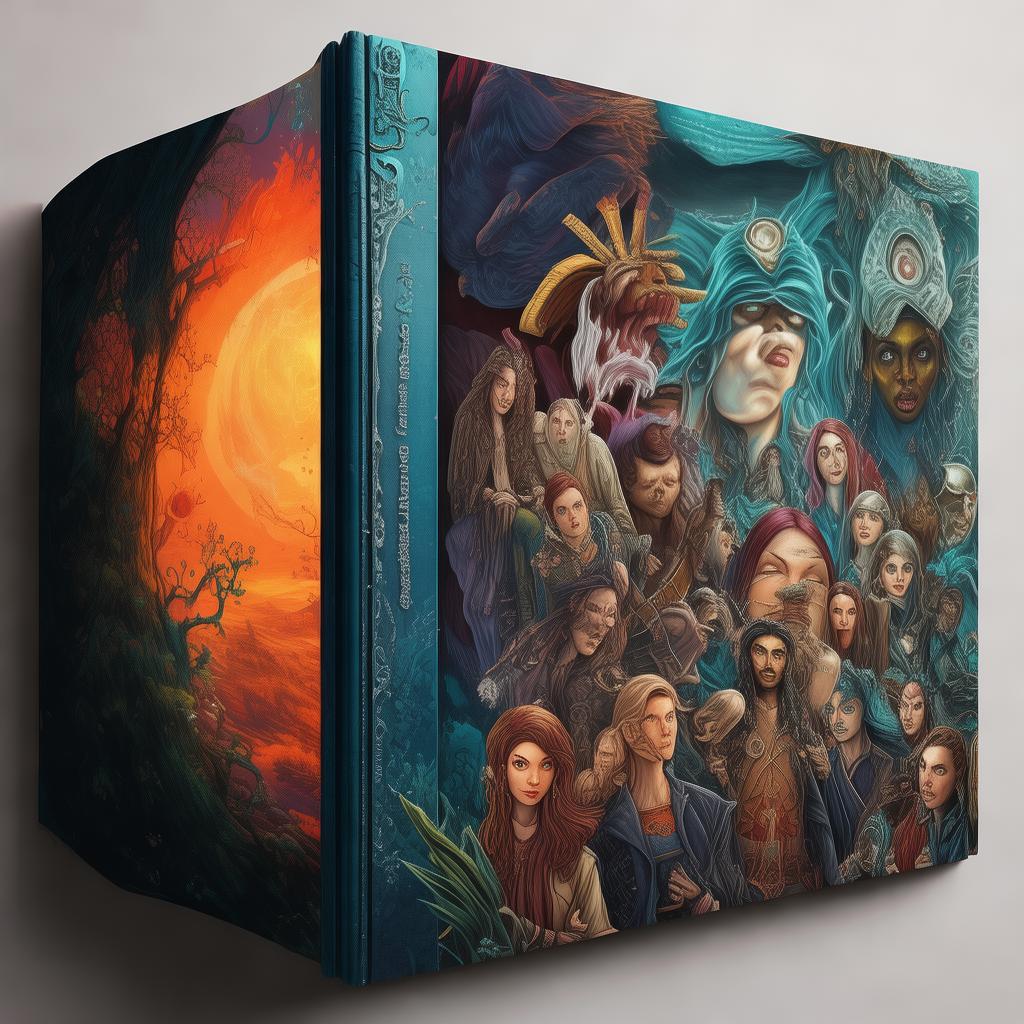Whispers of a War-Torn Heart
The village of Pingliu was a shadow of its former self. The constant drone of fighter jets overhead had become a haunting symphony, a reminder of the chaos that had engulfed the land. Amidst the rubble and the fear, there was a small, walled-off compound that stood as a beacon of hope: the Pingliu Orphanage. It was there that Wang Er Xiao, a young boy with a face too young to bear the weight of the world, found a brief respite from the horrors of war.
Er Xiao had lived in the orphanage since he was a baby, his origins a mystery shrouded in the whispers of the older children. They called him "The Peacebringer," a name that felt like a misnomer given the violence that surrounded them. Yet, he carried within him a quiet strength, a determination to live, to learn, and to hope for a better future.
One day, as Er Xiao was tending to the garden, the orphanage's gate creaked open, and in walked an old friend of the orphanage's founder, Mr. Li. Mr. Li was a man of few words, but the look in his eyes told a different story. He called for Er Xiao, and as the boy approached, he noticed the look of concern etched into the man's face.
"Er Xiao," Mr. Li began, his voice barely above a whisper, "I have brought you a gift from your past."
Er Xiao's heart raced. He had never met his parents, but the orphanage had always kept a photo of a young couple, his parents, in a place of honor. Mr. Li handed him the photograph, and for the first time, Er Xiao saw his own eyes reflected back at him.
"Your parents were kind people," Mr. Li continued. "They believed in peace, in the idea that every life was precious."
As the days passed, Er Xiao found himself drawn to the photo, to the idea of his parents, to the possibility that he might have had a family once. But then, tragedy struck. The orphanage was attacked by rebel forces, and in the chaos, Mr. Li was taken prisoner. The rebels claimed to have information that could end the war, but they demanded a trade: the lives of the children in the orphanage.
Er Xiao knew that he had to do something. He had to save his friends, the children who had become his family. But how? The answer came to him in a whisper, a voice that seemed to come from the very photograph of his parents.
"Find the key," it said, "the key that can unlock the hearts of those who have forgotten what it means to live in peace."
With the photo in hand, Er Xiao began his quest. He searched the orphanage, the surrounding town, and even the remnants of the war-torn countryside, looking for clues to the key. It was a dangerous journey, filled with the constant threat of being captured by the rebels, but Er Xiao pressed on.
One night, as he was exploring the ruins of an old temple, he stumbled upon a hidden chamber. Inside, he found a box, and within the box, a key that glowed with an ethereal light. The key was intricately carved with symbols that seemed to echo the whispers of his parents' voices.

With the key in hand, Er Xiao returned to the rebels' camp. The leader of the rebels, a man named General Qiang, was a monster, a man who had lost all semblance of humanity. But Er Xiao had a plan. He would use the key to unlock the hearts of those who had been so deeply scarred by the war.
As Er Xiao approached General Qiang, the key hanging from a string around his neck, the general's eyes widened with fear and recognition. Er Xiao held the key up, and a soft, melodic chime filled the air. The rebels, who had once been so fierce and unyielding, began to falter, their hearts touched by the beauty of peace.
General Qiang, unable to bear the contrast between the key and the violence he had come to know, broke down. He confessed to the betrayal of the peace treaty, and with that, the rebellion began to crumble.
Er Xiao had succeeded. He had brought peace to Pingliu, not with weapons, but with the key that had unlocked the hearts of the war-torn land. The rebels were disarmed, and the children of the orphanage were safe once more.
As the village began to rebuild, Er Xiao stood in the ruins, the photograph of his parents in hand. He realized that the key was not just a physical object; it was a symbol of hope, of the enduring power of love and peace.
And so, the legend of Wang Er Xiao, the boy who brought peace, was born.
✨ Original Statement ✨
All articles published on this website (including but not limited to text, images, videos, and other content) are original or authorized for reposting and are protected by relevant laws. Without the explicit written permission of this website, no individual or organization may copy, modify, repost, or use the content for commercial purposes.
If you need to quote or cooperate, please contact this site for authorization. We reserve the right to pursue legal responsibility for any unauthorized use.
Hereby declared.









